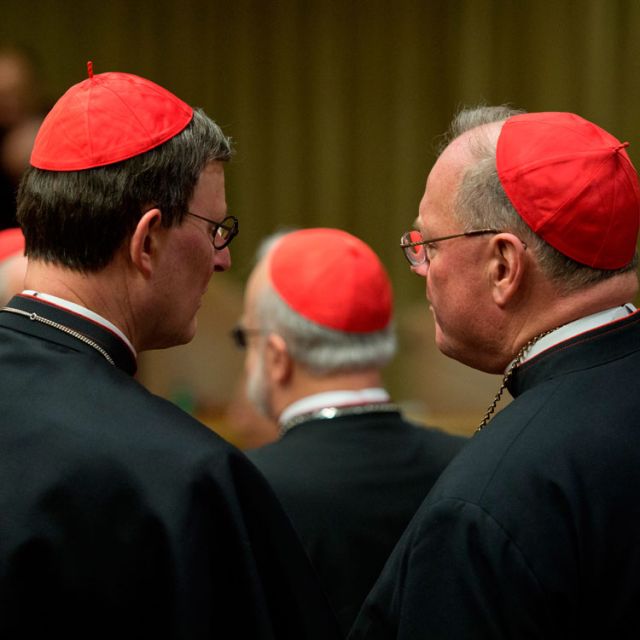A decision about when to start the conclave had been delayed until Cardinal Jean-Baptiste Pham Minh Man arrived on Thursday.
By lunch time on Friday more than 100 cardinals had spoken at the general congregation, where cardinals discuss the state of the Church and the challenges that will face the next pope before the conclave begins.
On Friday morning 18 individual cardinals had addressed the general congregation on various subjects, including interreligious dialogue, bioethics, a positive message of love and mercy consistent with the preaching of Pope John Paul II and the collegiality of Catholic bishops around the world.
On Sunday many cardinals are expected to celebrate Mass at the titular churches every cardinal is assigned in Rome. Toronto's Cardinal Thomas Collins' titular church is St. Patrick's. A Canadian Conference of Catholic Bishops spokesperson confirms that Collins will celebrate Mass there on Sunday, but a time has not been determined.
Salt + Light Television CEO Fr. Thomas Rosica, in Rome to assist Jesuit Father Federico Lombardi with media relations, is hoping for a new pope in time to be installed on the Feast of St. Joseph, March 19.
Speculating on how long it will take the cardinals to reach the two-thirds majority (77 of 115 cardinal electors) is more guesswork than analysis. Pope Pius XII was the quickest in the 20th century, elected in just three ballots. Cardinal Joseph Ratzinger, who became Pope Benedict XVI in 2005, was elected in four ballots.
On a normal day of voting, the cardinals will vote four times. On the first day they normally vote only once after the formal reading of the rules.
The conclave will begin in the afternoon after a morning Mass for the cardinals in St. Peter's Basilica.



